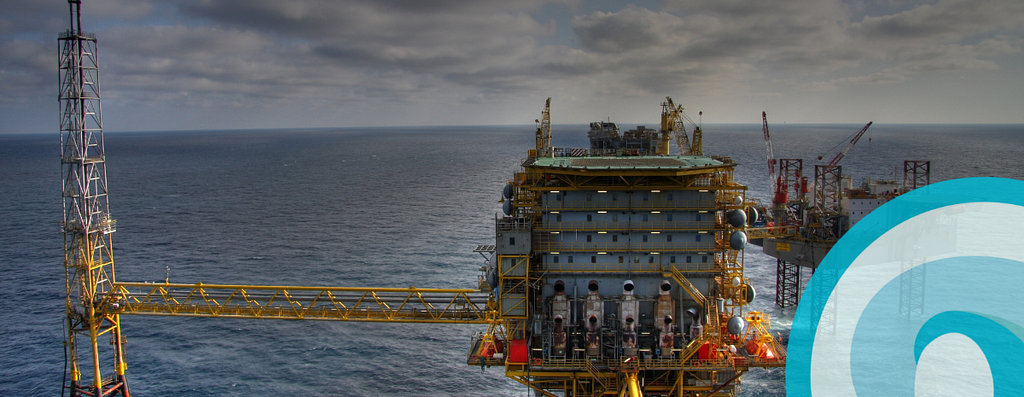The Fight Against Seismic Blasting

Along South Africa’s Wild Coast, conservationists, small-scale fishermen, environmental groups, and residents of the Western Cape are coming together to fight seismic blasting and oil exploration by the Shell Corporation. They’ve even drafted up court papers, hoping to keep seismic blasting away from their fishing communities.
The court battle, filed against Shell, has garnered attention from an international group of marine biologists and scientists who believe the size and scope of Shell Corporation’s seismic mapping plan will greatly damage marine life.
Seismic blasting is a classic part of the gas exploration process carried out by oil companies. Large ships, called seismic vessels, pull arrays of high-powered airguns through the water on cables six to eight kilometers long. These airguns usually blast the ocean floor every 10 seconds, measuring the sound’s echoes to map potential oil reserves. The highly-pressurized air explosions and mapping procedures can go on for days or weeks at a time, and the blasts are extremely loud–the largest man-made sound in the ocean, according to Oceana.
Whales, dolphins, and porpoises will hear these loud detonations from up to 2,500 miles away. The noises can “cause hearing loss, disturb essential behaviors like feeding and breeding, and mask communications between individual whales and dolphins,” according to the Center for Biological Diversity. Underwater animals that hear these noises become psychologically stressed, “disrupting biological essential behavior, such as vocalizing and foraging, and masking acoustic communication including communication between mothers and calves,” Dr. Douglas Nowacek said as part of the South African lawsuit.
Seismic blasting harms the biggest marine mammals in the ocean, injuring them, killing them, or hurting their ability to echolocate and survive. It also reduces the amount of fish-catch for fishermen. Yet, the loud noise caused by the airguns also impacts microscopic species like zooplankton. Zooplankton are at the base of the food web, creating a foundation on which the rest of the ecosystem relies. Despite their tiny size, zooplankton are incredibly critical building blocks necessary for the continuation of the entire ocean food chain. Seismic blasting puts the balance of these ecosystems at dangerous risk.
Consider this: these seismic airwaves are measuring the oil deposits beneath seven to nine kilometers of rock under the ocean floor. This means they must be loud and powerful enough to travel through hundreds of meters of water and several kilometers of rock, then bounce back upwards to the receptor tubes. Any detonation of sound that large will undoubtedly impact the thousands of animals living underwater, big or small.
And so, civil society groups and fishermen have united in South Africa to continue protesting offshore oil exploration and seismic blasting. Because for these people, the oil companies’ operations mean a whole lot more than just finding new fuel deposits. Gas exploration and offshore drilling operations can and will kill marine life, harm coastal livelihoods, and damage deep-rooted cultural connections to the ocean along the Wild Coast– or any coast, for that matter.
In 2017, Greenpeace activists (including their executive director at the time) blocked a seismic vessel’s path off the coast of New Zealand with a small boat to protest its oil exploration activities. A 2012 report recently re-shared by a Norwegian fisherman warns of the serious impacts seismic blasting had on his community in the Arctic. The negative impacts of the fossil fuel industry have been widely known and deeply felt for a while now, across the globe.
Offshore oil extraction poses huge risks to our oceans, wherever they seek to drill. Offshore drilling puts marine habitats at a much higher risk of oil spills, pollution, or complete destruction by industrial equipment. Seismic blasting itself feels like a particularly cruel way humans interfere with the natural environment in pursuit of further resource extraction.
Ironically, protests and demonstrations in South Africa have been postponed, as the region experiences a record-breaking heatwave. It seems that our planet is shouting at us to recognize the impacts of climate change right in front of our eyes.
On Thursday, February 3rd, join SEA live on Instagram at 14:00 UTC for a conversation with Simon Elwen from Sea Search about seismic blasting and its impacts on marine animals like whales, dolphins, and porpoises.

Leave a Reply